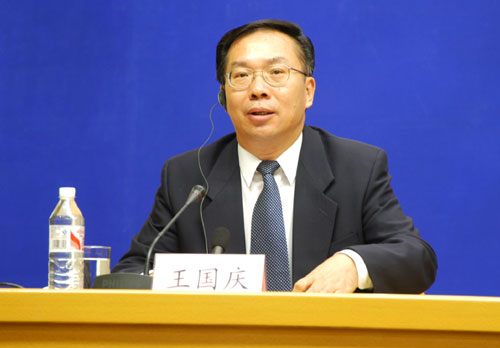 |
|
Wang Guoqing, new spokesman of China's top meeting of political advisors. [Photo/Xinhua] |
Even prior to his maiden show as spokesman for the National Committee of the Chinese People's Political Consultative Conference at Wednesday's news conference, what Wang Guoqing said had already turned heads.
"The more sensitive a question is, the harder I will try to clarify. As long as it does not affect national security and the overall situation, why should we shrink from some questions?" he was quoted as saying.
We appreciate that open-mindedness, and wish those precious lines be repeated a thousand times and written into textbooks for government spokespeople who should be information sharers. By dodging questions they find "sensitive", spokespeople may end up stoking confusion and undermining the credibility of the institutions they represent.
And those lines deserve a much broader audience. At the impending annual session of the country's top political advisory body, as well as that of the National People's Congress, the top legislature, at least, people need to see the country's political elite tackle "sensitive" issues upfront. From reemploying the millions to be laid off in the campaign to cut surplus production capacity, to assuaging the pervasive sense of uncertainty regarding social security, they have plenty of sticky issues to address. The thornier the topics, the more candid the discourse needs to be.
In that regard, Zhu Zhengfu, deputy chairman of the AllChina Lawyers Association and a member of the CPPCC National Committee, set a laudable example for other CPPCC members and NPC delegates.
He brought to the session a number of proposals targeted at some of the most pressing issues concerning judicial justice. Among those was the suggestion to stop criminal suspects confessing on TV.
"There are too many possibilities that may lead suspects to plead guilty against their will, or against the facts. Before a judgment by the court, we should stop society from treating them as criminals," he said.
Having suspects confess on TV programs may help law enforcement officers build their case. But it is against the jurisprudential principle of assumption of innocence, which this country has adopted.
Words like these may not be music to all ears. But they are precisely what our society needs. They should not only be spoken and heard during the CPPCC National Committee and the NPC sessions. They are worth cool-headed deliberation at the two sessions, as well as policy moves that make real differences.